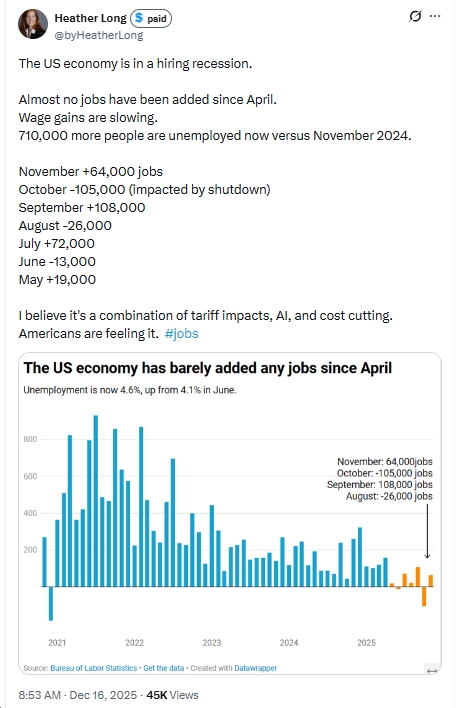Now, I’ve said that it’s important that we not restrict the review or the recommendations that this commission comes up with in any way. Everything has to be on the table. And I just met briefly with the commission and said the same thing to them. Of course, this means that all of you, our friends in the media, will ask me and others once a week or once a day about what we’re willing to rule out or rule in when it comes to the recommendations of the commission. That’s an old Washington game and it’s one that has made it all but impossible in the past for people to sit down and have an honest discussion about putting our country on a more secure fiscal footing.
So I want to deliver this message today: We’re not playing that game. I’m not going to say what’s in. I’m not going to say what’s out. I want this commission to be free to do its work.
In theory, there are few issues on which there is more vigorous bipartisan agreement than fiscal responsibility. But in practice, this responsibility for the future is often overwhelmed by the politics of the moment. It falls prey to special interest pressures, to the pull of local concerns, and to the reality familiar to every single American — it’s a lot easier to spend a dollar than to save one. That’s what, at root, led to these exploding deficits. And that is what will lead to a day of reckoning.
But I believe, with the help of these gentlemen and this commission, we can begin to meet this challenge in a serious and thoughtful way. And I believe we must, for the future of our country.
President Obama Kicks Off Bipartisan Fiscal Commission
Now, I've said that it's important that we not restrict the review or the recommendations that this commission comes up with in any way. Everything has to be on the table. And I just met briefly with the commission and said the same thing to them. Of course, this means that all of you, our friends in the media, will ask me and others once a week or once a day about what we're willing to rule out or rule in when it comes to the recommendations of the commission. That's an old Washington game and it's one that has made it all but impossible in the past for people to sit down and have an honest discussion about putting our country on a more secure fiscal footing.
So I want to deliver this message today: We're not playing that game. I'm not going to say what's in. I'm not going to say what's out. I want this commission to be free to do its work.
In theory, there are few issues on which there is more vigorous bipartisan agreement than fiscal responsibility. But in practice, this responsibility for the future is often overwhelmed by the politics of the moment. It falls prey to special interest pressures, to the pull of local concerns, and to the reality familiar to every single American -- it's a lot easier to spend a dollar than to save one. That's what, at root, led to these exploding deficits. And that is what will lead to a day of reckoning.
But I believe, with the help of these gentlemen and this commission, we can begin to meet this challenge in a serious and thoughtful way. And I believe we must, for the future of our country.



![Thursday News: “Europe draws red line on Greenland after a year of trying to pacify Trump”; “ICE Agent Kills Woman, DHS Tells Obvious, Insane Lies About It”; “Trump’s DOJ sued Virginia. Our attorney general surrendered”; “Political domino effect hits Alexandria as Sen. Ebbin [to resign] to join Spanberger administration”](https://bluevirginia.us/wp-content/uploads/2026/01/montage010826.jpg)













